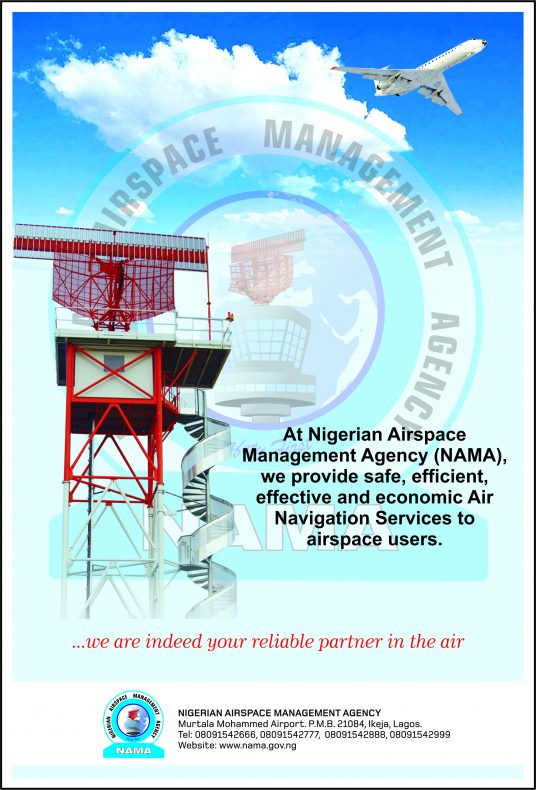Chief Executive Officer of Mainstream Cargo Limited, Mr. Seyi Adewale has warned that weak and outdated systems are crippling air cargo efficiency in Nigeria.
Speaking at the 5th CHINET Aviation Cargo Conference in Lagos, in a paper titled Harnessing Technological Advances to Improve Air Cargo in Nigeria, Adewale said ground handling agents (GHAs) are overwhelmed by excessive staffing because they rely on fragmented and inappropriate platforms.
He explained that the air cargo value chain including airlines, GHAs, the Nigeria Customs Service (NCS), the Federal Airports Authority of Nigeria (FAAN), and the Nigeria Civil Aviation Authority (NCAA) must urgently adopt advanced systems for real-time data sharing.
Without these upgrades, he argued, Nigeria will continue to lose competitiveness and struggle to achieve air cargo efficiency.
GHAs Trapped by Weak Systems
According to Adewale, many ground handlers now focus on perfecting only the Freight Forwarding Message (FFM) while neglecting other vital messages such as NFD (Notification of Delay), RCF (Ready for Carriage), and DI (Discrepancy Information).
“GHAs are overwhelmed with needless high staff numbers just to manage inefficiencies and the need to engage permanent staff to handle each airline’s unique system,” he said. “The reality is that current solutions are either inappropriate or poorly framed. These inefficiencies could be solved with proper Customer Relationship Management (CRM) technology that supports air cargo efficiency.”
He called for a shift toward more comprehensive cargo management platforms, noting that efficiency gains would reduce costs and directly improve air cargo efficiency nationwide.
The Case for Real-Time Communication
Adewale stressed that Tally Clerks should be given official tablets at operational back-ends to access and transmit information directly. This, he said, would end the bottlenecks caused by supervisors who delay the release of data.
“This step will eliminate delays, improve planning, and ensure better handling of time- and temperature-sensitive cargo,” he added. “Such reforms are necessary for sustainable air cargo efficiency.”
Persistent Challenges Facing Air Cargo
Mr. Adewale also drew attention to several obstacles slowing down air cargo efficiency in Nigeria. He explained that airlines currently operate on different systems, making it difficult for ground handling agents to harmonize processes. Communication gaps between airlines, GHAs, and Customs further create delays, while consignees bear the burden through extra charges such as demurrage.
He added that airlines spend heavily to keep ground staff covering technology gaps, yet Customs clearance remains slow, with officers often resuming late. The persistent issue of poor electricity supply, which leads to system downtimes, compounds the problem. “These bottlenecks frustrate users, discourage efficiency, and continue to undermine overall air cargo efficiency across the industry,” he warned.
Customs’ B’Odogwu Platform: Progress with Limits
Adewale commended Customs for introducing the B’Odogwu platform, which enables airlines to generate rotation numbers instantly without relying on agents. However, he warned that the system still has teething challenges.
“Customs must not only train staff on the use of B’Odogwu but also conduct regular competence tests,” he noted. “Energy infrastructure issues must also be resolved so the platform does not appear worse than the solutions it replaced.”
Path Forward for Air Cargo Efficiency
To strengthen Nigeria’s cargo systems, Mr. Adewale said air cargo efficiency requires continuous training for Customs officers on the B’Odogwu platform, supported by regular competence tests. He also stressed the need for reliable power supply and backups, noting that technology cannot function without stable energy.
He urged GHAs to deploy comprehensive platforms that transmit all required message sets, not just FFM, while airlines should allow system upgrades without penalties. Finally, he advised that Tally Clerks be equipped with official tablets to send and receive data in real time. This, he argued, would eliminate delays, improve planning, and boost overall air cargo efficiency in Nigeria.
He concluded that advanced technology adoption remains the only path to boosting transparency, reducing costs, and achieving lasting air cargo efficiency in Nigeria.























